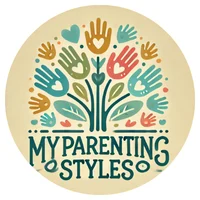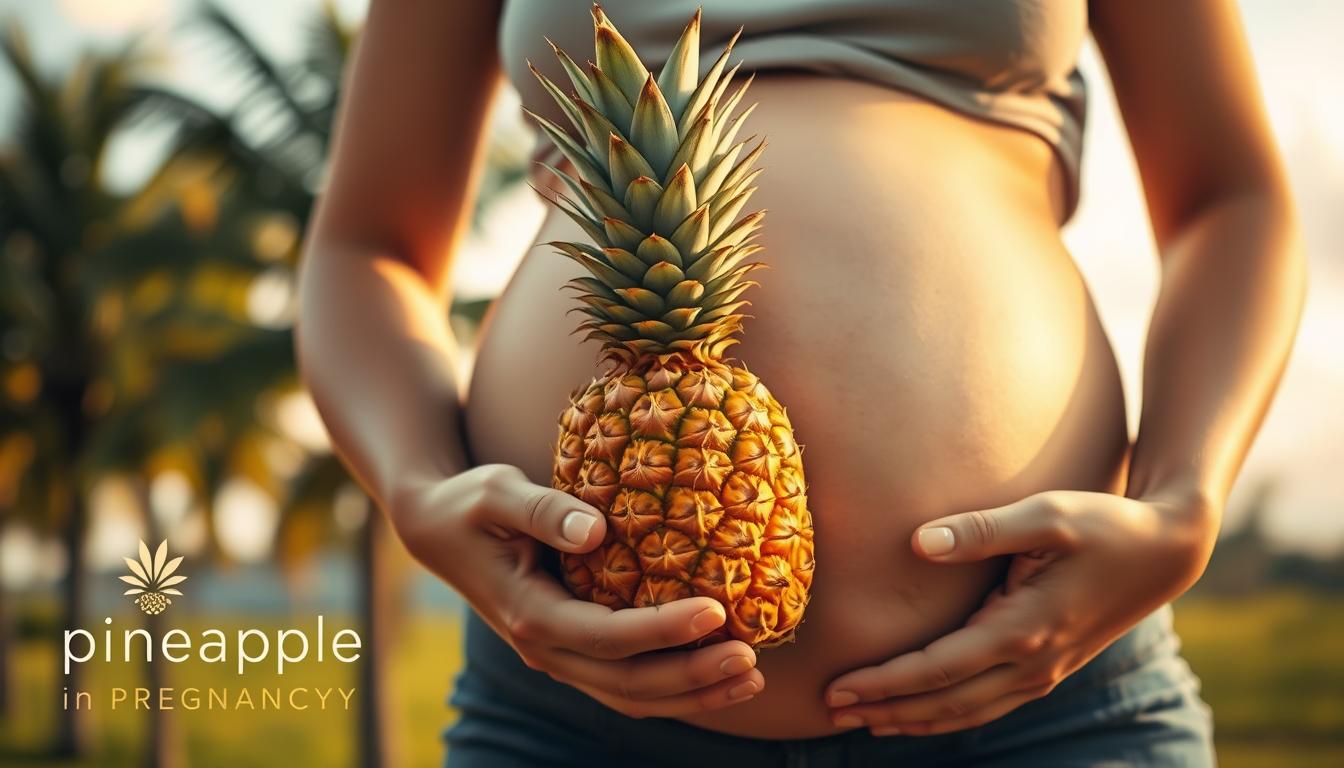Pineapple During Pregnancy: What You Need to Know
Many women wonder if eating pineapple is safe during pregnancy. It’s important to know the facts about pineapple in pregnancy. This helps you make good choices about your diet during this time.
Eating pineapple can be good for you and your baby. But, it’s important to think about the risks and benefits. Knowing if pineapple is safe to eat is key as you go through pregnancy.
Introduction to Pineapple Consumption
Thinking about eating pineapple during pregnancy is important. You need to know its effects on you and your baby. By understanding the good and bad, you can choose healthy foods for your pregnancy.
Key Takeaways
- Understanding the safety of pineapple in pregnancy is crucial for making informed decisions about your diet.
- Pineapple can be a nutritious and healthy choice during pregnancy, but it’s essential to consume it in moderation.
- Eating pineapple during pregnancy can provide essential vitamins and minerals.
- It’s vital to consider the potential risks and benefits associated with consuming pineapple during pregnancy.
- Consuming pineapple in pregnancy requires careful consideration of its potential effects on your body and your baby.
- Is pineapple safe during pregnancy? The answer depends on various factors, including your individual health and the amount you consume.
Understanding Pineapple in Pregnancy: Basic Facts
Pineapple is a nutritious fruit that’s great for pregnant women. It’s packed with vitamins and minerals like vitamin C and manganese. These are key for a healthy pregnancy.
Pineapple is also very hydrating because it has a lot of water. It has an enzyme called bromelain, which fights inflammation and aids digestion. This makes pineapple a good choice for a healthy diet during pregnancy.
- Rich in essential vitamins and minerals, such as vitamin C and manganese
- High water content, making it an excellent snack for staying hydrated
- Contains anti-inflammatory properties, thanks to the enzyme bromelain
Eating pineapple can help pregnant women in many ways. It boosts the immune system and supports digestive health. Knowing what’s in pineapple helps pregnant women make better food choices and enjoy its benefits.
Safety of Eating Pineapple While Pregnant
Eating pineapple during pregnancy is a topic of much debate. Many expecting mothers wonder if it’s safe to consume. The main concern is the link between pineapple and miscarriage, especially in early pregnancy. However, research shows that moderate pineapple consumption is unlikely to harm.
Health professionals say moderation is key when enjoying pineapple while pregnant. Pineapple and early pregnancy can peacefully coexist with limited amounts. Excessive pineapple consumption may upset nutrient balances, leading to complications.
Studies on pineapple and miscarriage are mostly inconclusive. Experts agree that a balanced diet, including various fruits and veggies, supports a healthy pregnancy.
To ease your worries, here are some important points:
- Modest pineapple consumption is unlikely to cause harm
- A balanced diet is crucial for a healthy pregnancy
- Too much pineapple may upset nutrient balances
In conclusion, eating pineapple while pregnant can be safe if you’re mindful of your diet. Enjoying pineapple in moderation allows you to benefit from its nutrients. This way, you can minimize risks related to pineapple and early pregnancy or pineapple and miscarriage.
Nutritional Benefits for Expecting Mothers
Pineapple is packed with nutrients, especially for pregnant women. It’s a healthy snack choice. It’s full of vitamins and minerals like vitamin C, manganese, and copper.
Pineapple juice is great for pregnant women too. It gives natural energy and boosts the immune system. It also has lots of water to prevent dehydration. Plus, it has bromelain, which fights inflammation and aids digestion.
- Rich in vitamin C, which supports immune system health
- Good source of manganese, which plays a crucial role in bone health
- High in copper, which helps to support the production of red blood cells
- Contains anti-inflammatory compounds, which can help to reduce inflammation and improve digestion
Eating pineapple can give pregnant women the nutrients they need. It’s tasty and full of health benefits. So, pineapple is a great choice for a healthy pregnancy diet.
Best Ways to Consume Pineapple During Pregnancy
When you’re pregnant, it’s key to pick the best ways to eat pineapple. Fresh vs. canned pineapple matters a lot. Fresh pineapple is packed with vitamins, minerals, and antioxidants. It’s a great choice for pregnant women.
It’s important to know the recommended serving sizes. The American Pregnancy Association says pregnant women should eat 1-2 cups of fresh pineapple a week. This helps them get enough vitamin C without too much sugar.
Choosing fresh pineapple and sticking to serving sizes is important. But, safe preparation methods are even more crucial. Pregnant women should wash their hands well before handling pineapple. They should also cut it on a clean surface. Keeping pineapple in the fridge at 40°F (4°C) or below stops bacteria from growing.
- Choose fresh pineapple over canned to maximize nutritional benefits
- Follow recommended serving sizes to avoid overconsumption
- Practice safe preparation methods to prevent foodborne illnesses
By following these tips, pregnant women can enjoy pineapple’s health benefits safely. Always talk to a healthcare provider or a registered dietitian for advice on what to eat during pregnancy.
Common Myths About Pineapple and Pregnancy
Pineapple and pregnancy often mix up myths and facts. One big myth is that eating pineapple can lead to miscarriage. But, there’s no science backing this up. Pineapple is actually full of good stuff like vitamin C and manganese.
Another myth says pineapple is toxic for pregnant women. This might come from pineapple’s bromelain, which breaks down protein. But, the bromelain in pineapple is safe for both mom and baby. The American Pregnancy Association says pineapple is okay to eat while pregnant.
It’s key to know the truth about pineapple and pregnancy. Expectant moms can make better food choices by understanding the facts. Here are some important points:
- Pineapple is packed with vitamin C, which boosts the immune system and health.
- Pineapple has bromelain, which can help with inflammation and digestion.
- There’s no proof that pineapple causes miscarriage or is toxic during pregnancy.
In short, pineapple is a healthy and safe choice for pregnant women. It adds important vitamins and minerals to their diet. Plus, it tastes great!
Potential Side Effects and Precautions
Thinking about can i eat pineapple while pregnant? It’s key to know the possible side effects and precautions. Pineapple can be good for a pregnant diet, but some women might react badly. Do pineapples induce labour is a worry, but studies show pineapple doesn’t usually start labor. Yet, women near their due date should be careful with pineapple, as it might make the uterus move.
Wondering does pineapple induce labor? Talk to your doctor for advice that fits you. Generally, eating pineapple in small amounts is okay. But watch out for signs like stomach problems or allergies.
Signs of Pineapple Sensitivity
- Digestive issues, such as bloating or gas
- Allergic reactions, such as hives or itching
- Uterine contractions or cramping
If you notice these symptoms, see your doctor about eating pineapple during pregnancy. Knowing the possible side effects helps women make smart food choices for a healthy pregnancy.
Trimester-Specific Guidelines for Pineapple Consumption
When you’re pregnant, it’s key to think about your diet’s needs for each trimester. Pineapple cravings during pregnancy are common. Knowing how to add pineapple to your meals can be helpful. In the first trimester, a balanced diet is important, and pineapple’s vitamin C can be a good addition.
In the second trimester, pineapple and pregnancy can help with morning sickness thanks to its anti-inflammatory effects. But, eating too much pineapple can lead to too much sugar.
In the third trimester, be careful with pineapple because cravings might get stronger. Eating a variety of fruits, including pineapple, supports your baby’s growth. Also, watch out for any pineapple allergies or sensitivities, especially if you’ve had issues with pineapple and pregnancy before.
- Have pineapple in moderation (1-2 cups a week)
- Opt for fresh pineapple over canned or processed
- Don’t eat pineapple if you have any bad reactions or allergies
By following these guidelines and being aware of your pineapple cravings during pregnancy, you can enjoy pineapple’s benefits. But always talk to your healthcare provider for advice on pineapple and pregnancy.
Conclusion: Making Informed Choices About Pineapple During Pregnancy
Thinking about eating pineapple during pregnancy? It’s important to look at both sides. Pineapple can be good for you when you know what to do. It’s full of vitamins and minerals that are great for your diet.
The safety of pineapple during pregnancy depends on a few things. This includes how far along you are and your health. Knowing the risks and taking steps to avoid them lets you enjoy pineapple safely. It’s all about being smart and informed.
Deciding about pineapple and pregnancy needs careful thought. Look at the latest studies and talk to your doctor. This way, you can make choices that are best for you and your baby. With the right info, pineapple can be a tasty and healthy part of your pregnancy.







